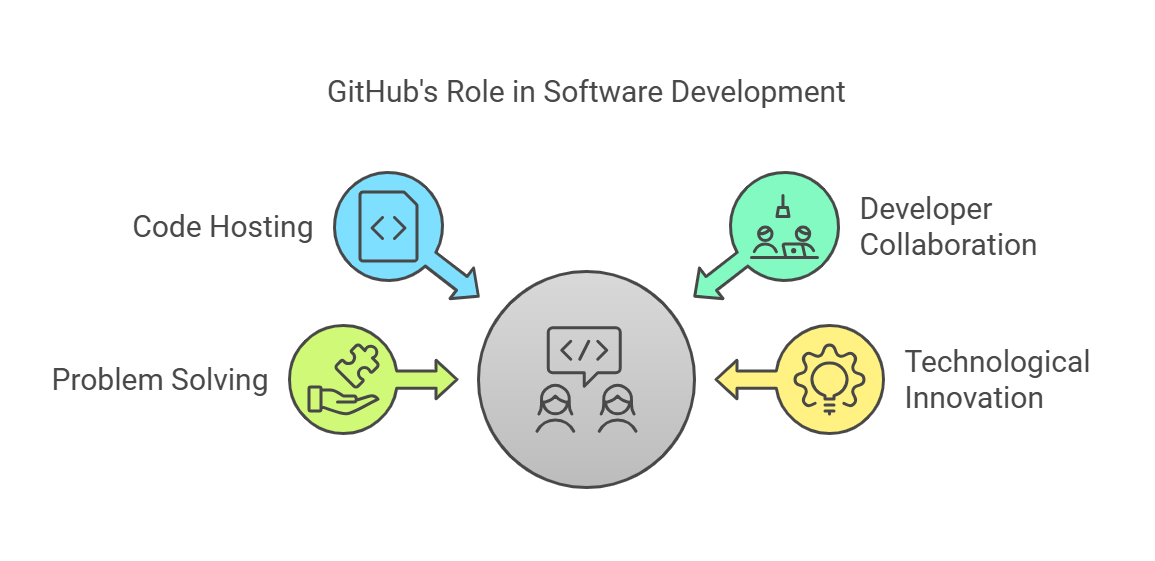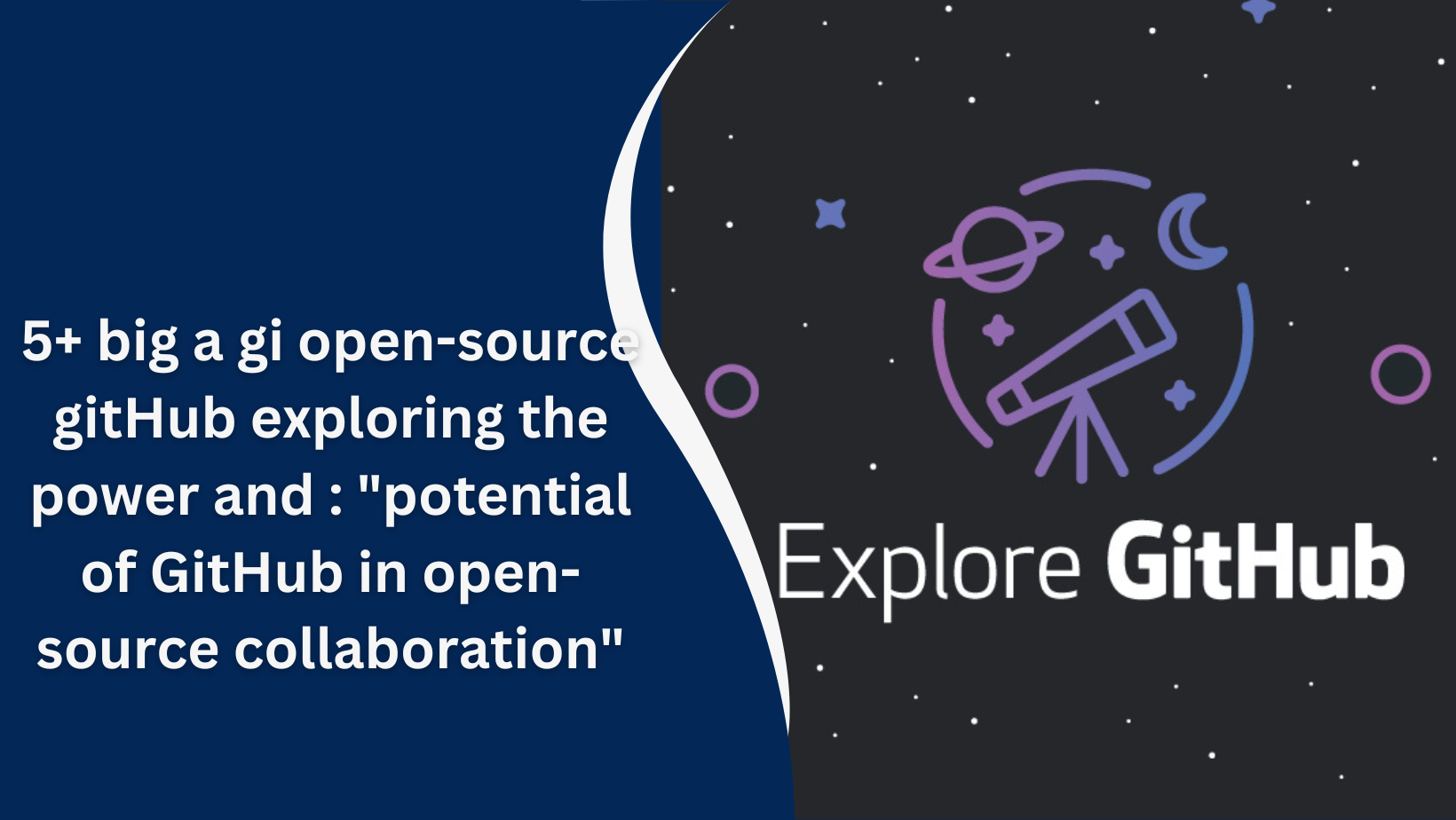Explore the significance of GitHub in the software development world, focusing on its role in fostering open-source collaboration and innovation with the “Big a gi GitHub” concept.
Big a gi GitHub Exploring the Power and Potential of GitHub in Open-Source Collaboration
GitHub has revolutionized the way software development is conducted. It’s not just a platform for hosting code, but a global collaborative space where millions of developers work together, solve problems, and build the next generation of technology. In this article, we will delve into the significance of GitHub, particularly focusing on the “Big a gi GitHub” concept. We’ll explore the term’s connection with GitHub’s features and how it fosters an expansive environment for collaboration in software development.
What Is GitHub?
GitHub is a web-based platform that offers Git repository hosting. Git is a version control system that tracks changes to files, allowing multiple developers to work on a project simultaneously without overriding each other’s contributions. Founded in 2008, GitHub has become the largest host of source code in the world, hosting millions of repositories.
With GitHub, software developers can:
- Store their code.
- Collaborate on open-source projects.
- Share knowledge through issues and discussions.
- Utilize integrated tools for continuous integration and deployment.
Big a gi GitHub refers to the growing influence of GitHub in the open-source community. The phrase, while colloquial, hints at the immense scale and power that GitHub has in enabling global collaboration, empowering developers with the tools they need to create innovative software.

No Operating System Found: What It Means and How to Fix It
The Role of GitHub in Open-Source Development
Open-source software refers to software that is made available to the public with a license that permits anyone to use, modify, and distribute it. GitHub has become synonymous with the open-source movement, offering a platform where open-source projects can flourish.
- Accessibility and Collaboration: GitHub allows developers from around the world to contribute to projects by submitting “pull requests,” which are requests to merge changes into the main codebase. This open collaboration process encourages developers to share knowledge, debug code together, and build on each other’s work.
- Repositories: GitHub repositories (often abbreviated as “repos”) are where code is stored. Each repository can contain multiple versions of a project, track changes over time, and be shared with the community. The open access to repositories on GitHub makes it an ideal platform for open-source projects.
- Community Engagement: GitHub’s features, such as “issues,” “discussions,” and “pull requests,” provide an environment where developers can discuss project updates, report bugs, and propose new features. The collective participation in these areas contributes to the dynamic nature of open-source projects.
Benefits of GitHub for Developers
GitHub offers a wide array of features that make it an essential tool for developers. These features promote collaboration and streamline the development process, making it easier for teams to work together and track progress.
- Version Control: GitHub’s integration with Git provides a powerful version control system. Developers can maintain multiple versions of their project, manage branches, and collaborate without overwriting others’ work.
- Forking: Developers can “fork” a repository to create their own version of a project. This makes it easier for anyone to contribute to an existing project by creating their own copy, making changes, and submitting them for review.
- Open Source Projects: GitHub is a hub for open-source software, where anyone can contribute. The platform’s collaborative nature fosters innovation by allowing developers to work on a project together, irrespective of their geographic location.
- Continuous Integration and Deployment (CI/CD): GitHub provides seamless integration with tools that automate testing and deployment processes, allowing developers to easily deploy updates and ensure the quality of their software.
- Security: GitHub implements several security measures to protect the code and the users contributing to repositories. Features like Dependabot help developers stay informed about security vulnerabilities in their dependencies.
Big a gi GitHub: The Growing Ecosystem
The term “Big a gi GitHub” suggests a future where GitHub will only continue to grow in significance. With the ongoing expansion of software development, GitHub is positioning itself as the go-to platform for open-source software development. Its increasing importance is reflected in the growing number of repositories and the rising trend of developers adopting the platform for personal and professional use.
- Expanding GitHub Universe: GitHub is continually evolving, introducing new tools and features to enhance collaboration. The acquisition of GitHub by Microsoft in 2018 has resulted in more robust integrations with popular tools and development environments, making GitHub even more powerful for developers.
- Increased Collaboration Across Industries: While GitHub started as a platform for software developers, its influence has spread to other industries, including data science, machine learning, and even the creative arts. More and more professionals are using GitHub to collaborate on projects beyond traditional coding.
- Learning and Teaching: GitHub is also an invaluable resource for learning and teaching. With repositories like GitHub Education, developers can access free resources, tutorials, and course materials to further their skills. It also serves as a platform for teachers and students to collaborate on coding projects.
Conclusion
GitHub is not just a repository for code; it is the heart of the open-source development movement. The “Big a gi GitHub” phrase encapsulates the platform’s vast and ever-growing influence in the world of technology. With its global reach, collaboration features, and developer-centric tools, GitHub will continue to play a central role in shaping the future of software development. Whether you’re an experienced developer or a newcomer to coding, GitHub offers a world of opportunities for collaboration, growth, and innovation.
FAQs:
- What is GitHub? GitHub is a web-based platform that hosts Git repositories, enabling developers to collaborate on software development, share code, and track changes.
- What does ‘Big a gi GitHub’ mean? The term “Big a gi GitHub” symbolizes GitHub’s growing influence and role in fostering open-source collaboration and software development worldwide.
- Why is GitHub important for developers? GitHub provides powerful version control, collaboration features, and access to a vast open-source ecosystem, making it essential for modern software development.
- What are the benefits of contributing to open-source projects on GitHub? Contributing to open-source projects allows developers to collaborate with others, learn new skills, and gain recognition in the global software community.
- How can GitHub enhance collaboration in development teams? GitHub offers tools like pull requests, issues, and discussions, which help teams track changes, report bugs, and collaborate on new features efficiently.

